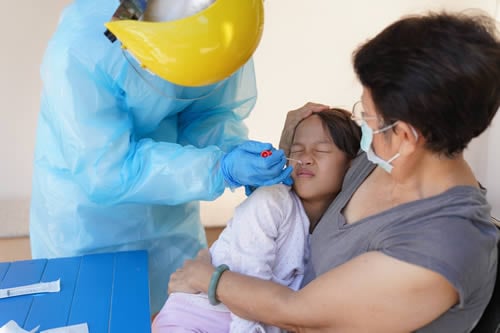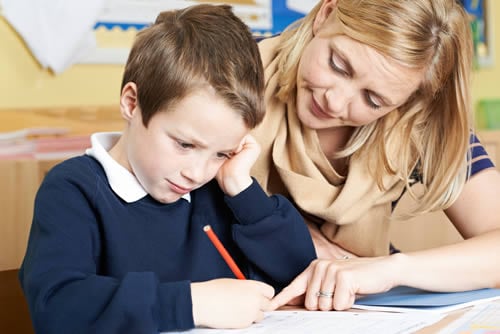Schools have been back a week. Teachers are working hard to ease children back into their routines and do activities to address the fallout of Covid and lockdowns. Initially, schools will focus on the well-being of everyone and re-integrate students back into school life, timetables, socialising and activity. They will gradually return to normal teaching schedules and there may be a lot to catch up on, especially for schools or students that haven’t engaged with home-learning. Whilst it is a relief to most parents and children to return to school, for some it could be the start of more problems.
I have listed below the help parents can access to support their child with SEN and ease the transition back to school.
1) Schedules

Although children need schedules, another change in their life can be disruptive and traumatic such as those who don’t adjust well to changes, such as students on the autistic spectrum. Hopefully, your child’s school will have briefed you of their return plans so you can prepare your child. Reassure your child that they will be keeping to the same timetable prior to lockdown, or as their on-line one. Prepare your child and discuss their schedule and activities for each day so they know what to expect. Get them to bed earlier to cope with earlier morning starts. It’s going to be a tiring transition.
2) Feeling nervous about returning to school

Almost like the first day at school, or the return to a new school year (or that Monday morning feeling some of us get), your child may get anxious without being aware of it themselves. Reassure your child that it will be great to see their friends, peers, their teachers and adult support staff – they know them already. Tell them everyone else will be feeling the same too. Check for signs of anxiety: if your child is tired or agitated, not sleeping well – they might sleepwalk or wet the bed, have tantrums or meltdowns. If you need to ease your child back into school – keep the school informed.
3) Will my child be safe at school?

Some children may worry about being safe at school again with so many people, after months of being isolated from the world, grandparents, family members and friends.
Whilst schools can’t ensure total safe distancing due to space constrictions, children can try to be careful not to breathe into anyone’s face; to cover their mouth when coughing, and sneeze into their sleeve or elbow. Please remind them, and ensure they have hankies or tissues if they are prone to sneezing or get spring/hay fever (& advise the school). If they need medication, make sure they take it – after all, it takes a few days for antihistamines to kick in once the season starts.
4) My child has lost their confidence
Children may lose their confidence in different ways:
- How to greet or talk with their friends
- How to react when their teacher talks to them
- How to deal with playground squabbles or friendship changes
They may have not engaged with online learning, or given up doing some types of activity or subjects, such as not writing, not knowing how to focus or constantly ask questions, not sitting still and waiting.
Talk to your child about the behaviours you notice at home and how they can try to be better in school. Some teachers might on occasion unfairly dish out points for bad behaviour that can push some children’s buttons, making them uncooperative in class.
Whilst sometimes it’s unfair, teach the concept of ‘Win some, lose some’ and check with your child how many times they should have received bad behaviour points, but didn’t. They might agree that, on this occasion, it was unfair, but generally they should have got a lot more!
5) My child won’t write
You have done your best at home. Now it’s over to the professionals that are paid to identify and work with your child to address their additional learning and wellbeing needs. Children may not write for different reasons: they may lack confidence or enough information to get down what they want to say; they may have a form of dyslexia and need support; they may be perfectionists and not want to make mistakes.
Communicate your concerns with your school, and if you feel your child’s school isn’t addressing their needs, talk to us. SENsational Tutors have experienced and well-qualified specialists who can work with all the learning-related mental health and well-being needs of your child. From the first session, children feel understood and start to regain their confidence.
6) My child is refusing to go back to school

Your child may have enjoyed being at home so much or maybe so anxious about returning to school that they may refuse to go to school, refuse to get up or get dressed, or after a few days of going to school, may not want to leave home again.
Keep the school informed. The school has a legal obligation to record all attendances and absences with reasons. Liaise with your teacher. Perhaps the teacher can make a phone-call or a visit to reassure and ease your child in? Perhaps the school can organise buddies to welcome back and look after your child, so they know who they will be with each day?
If your child has special friends, talk to their parent to see if you can arrange this and advise the teacher. If not, advise the teacher of your concerns, or their TA.
7) My child has ADHD / ADD
Returning to school will be a huge distraction for your child with ADHD who will want to turn their attention to everything else rather than persist with their tasks. Prime your child for the day, remind them of strategies that worked well at home to keep them focussed. Do they need a timer to help focus for 10 minutes at a time? Contact your child’s teacher and SENCo about what worked well at home and ask for those to be implemented in school too. Work with the school to help your child. If your child is on medication, do ensure they are taking it, and the school is informed of any changes.
8) Family support, not separate lives

Just because your child is returning to school, don’t immediately return to fully separate lives (particularly if you are busy with work). Try to retain a sense of normality with the schedules for getting up, ready & out to school. Perhaps parents can alternate school runs and prevent feelings of separation arising on both sides, and by keeping an open dialogue about your days with and without each other. Talk to your child on the way to school to mentally prepare them for the day.
On the way home, or later on, talk to them about their day, their activities and friendships. Discuss why’s and wherefore’s. Talk to them about your day too, so it’s not all one-sided! This will keep an open dialogue and help discuss any changes, and address any issues or feelings, particularly if children are finding it hard to make sense of the changes, their thoughts or feelings.
From being in a small household for months back into a large class with lots of characters can be hard. Some children may find the adjustment hard again as they have to relearn and follow the teacher’s instructions and school rules.
9) My child is nervous about doing a COVID-19 test

Your child will be shown how to do the test three times at school, before they bring home a kit. Parents and anyone at home can also get a kit. Testing is very easy to do and painless. I barely feel anything although it can trigger a little gag reflex, but must persist.
Method:
- With clean hands, remove a swab on a thin plastic stick from its wrapper
- Open mouth wide and stroke the swab on each tonsil at the back of their throat (or that location) for a count of 10 seconds each. (a mirror can be used to find the back of the mouth).
- After, directly insert the swab into one nostril and stroke the back of the nostril for another 10 seconds.
- Then put the swab in the testing fluid and wait to see if it changes colour (if a positive result). Very simple, and older children will be able to do their own.
10) My child has a TA
Get in contact with the TA and inform them of your child’s worries about returning. Give the TA some talking points to prompt your child and encourage them to open up, for example, some tasks they enjoyed or did well in, especially during Lockdown, an interest they have developed, the new pet or baby.
11) My child had a Teaching Assistant (TA) but not during Lockdown

If your child usually has TA support, but doesn’t when they return to school, contact the class teacher or SENCO to find out when there will be a TA. If you don’t get a satisfactory response, follow up with School Office to find out who to speak to, or the School Head.
12) My child had SEN intervention prior to Lockdown
SEN interventions should resume, but may be delayed whilst SEN teachers and the SENCo support class teachers and observe children for additional support needs.
13) My year 6 child with SEN is transitioning to a different secondary

SENCos in primary schools will soon be busy liaising with SENCos in secondary schools regarding year 6 SEN transitions to their new schools for Year 7 in September. Your primary school SENCo needs to ensure your child’s support notes are passed over, and they try to set up a transition meeting and arrange a visit to the school so your child with SEN can meet some of their teachers-to-be on a 1:1 basis, although it might be online this year. Most secondaries will also do a welcome day in the summer term for all new year 7 children to meet each other and their classes before the summer holidays.
14) My child has a Speech and Language Therapist (SaLT) or Physiotherapist
Some children may have been lucky to continue receiving SaLT services during Lockdown, but most won’t. Don’t hesitate to contact your SaLT, School’s SENCO or School Office to find out when your child’s sessions will resume. They should normalise in the next couple of weeks, as staff catch up on their workload and students.
15) My child needs extra help at school

If you feel your child has been unable to work without your full attention and unaided, do inform the class teacher of your concerns so they can keep a closer eye on your child and ensure they receive the attention or support needed. Teachers and Assistants will be observing children over the next few weeks whilst they work and interact in classes with a view to implementing support, possibly changing seating plans and mixing students by level or placing weaker with stronger children (examples only). Communicate your concerns with the teacher, email them or call the school office, and follow up with them in a few weeks.
16) I think my child has additional learning needs (ALN, ALS)

If you are concerned that your child may have undiagnosed additional learning needs that need to be assessed, please initially talk to the class teacher, but you can also raise your concerns with the school SENCo who will add your child to their list for in-class observations and discussions with their class teacher.
If your child has been assessed externally, then do inform the school – the class teacher and SENCo can then look to implement the Assess, Plan, Do, Review cycle more quickly for your child. SENCos are usually very busy, so the more information you can provide, the more helpful – such as a copy of any report, and any strategies you have been using at home that have worked, as well as those that haven’t. If you would like a private assessment, contact SENsational Tutors to find a tutor near you.
17) There’s no SENCo at my school
There may be no SENCo for various reasons:
- The post wasn’t filled
- They may now be teaching fulltime or covering for colleagues
- Have gone on leave eg maternity leave
However, the School has a duty to ensure that additional learning needs of students are met, so the School Office, Head or Deputy Head would be able to advise on the designated person.
It is important you communicate with the school any concerns for learning, safety and health and wellbeing, so the school can ensure that the appropriate support mechanisms are put in place for your child and all children of concern.
18) My child has done very little work at home
Don’t worry! The school will work to find out what children can and can’t do and plan to catch up. It’s the teacher’s responsibility to teach in ways that motivate and enthuse your child and identify the support needs. Hopefully, your child will settle back in quickly again.
Students who received support before lockdown should still receive it on return, and schools, local authorities and the Government are in discussions regarding how to help children catch up. It is a national (and international) issue.
Students with SEN have very specific needs that the school may not be able to address. Let the school know if there are specific concerns regarding your child, as you may need to take it up with your local authority. However SENsational Tutors can provide highly experienced tutors to address the learning needs of your child, enable them to catch up and make greater progress. With many children, the school first has to decide and implement an intervention programme, with a later review, prior to making referrals to specialist professionals.
If you would like a tutor to help your child catch up or learn strategies to work independently, book a free 30-minute consultation with SENsational Tutors.
19) My child works better at home

Many parents have felt some of their children work better at home under close supervision and individual instruction, but a school can provide additional benefits such as socialising with others, access to wider facilities for sport, IT, cooking, and science, and specialist teachers.
You may decide to continue to home-school your child at present or for the long term. Do keep your school informed if you wish to continue homeschooling, or trialling it, or if your child refuses to go to school. Your school has a legal obligation to take morning and afternoon attendance registers as your child is on-roll/registered with them. Non-communication and non-attendance risk your child losing their school place. Your School Head is the best person to advise you.
20) Ready for School? – Uniform, Shoes and PE Kit

It might have been a long time since your child wore their full uniform – so check it still fits! Children don’t like to feel different to others – your DS or DD may have grown tremendously with so much good food and nurturing during lockdown. Can you eek out a few more months before the inevitable summer growth spurt?
Reassure them that many other children will be in the same position – after all, the shops have been shut, and it may not be worth buying trousers for two months wear. (although they could be cut into shorts for summer if allowed).
Do make sure your child has their PE kit and trainers for the right day – teachers will be doing lots of activities for kids to gel and get active again.
Pencil cases, maths sets – these are probably all mixed up at home. Do ensure your child has the obligatory pens, sharp pencils, a rubber and ruler in their pencil case. At secondary they may need a protractor, compass and calculator for Maths lessons.
21) Ease into returning to school
It’s going to be exhausting for your child with SEN returning to full structured days with many things going on. Praise your child. Keep them motivated.
If your child is suffering from overload or overwhelmed with returning to school, or is not getting their sleep, then keep them at home for a day. Build it up! (and keep the school informed). Remind your child of strategies to use at school to help them keep going and not get into trouble with the teachers – especially talking out when they want to as they would at home.
Finally, you and your children have been amazing adapting your lives, having your children at home full-time, supervising and even teaching them what the school has sent home. Well done! Now take time for yourself, even if it’s just between school runs. Go for a walk and meet a friend, exercise together. Grab a coffee and have adult time!
It’s only two weeks until the Easter holidays…!
Gillian is one of SENsational Tutor’s Specialist SEN Teachers, who is very experienced and works across all age groups.
Useful Links:
https://learning.nspcc.org.uk/news/2020/june/returning-to-school-after-coronavirus-lockdown
https://www.mentalhealth.org.uk/coronavirus/school-guidance-for-coping-with-coronavirus
https://youngminds.org.uk/blog/supporting-a-child-returning-to-school-after-lockdown/




